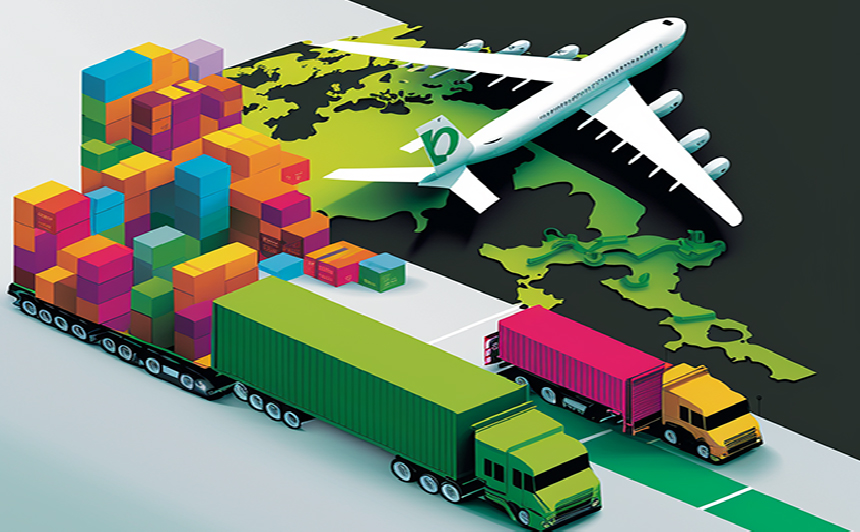For many organizations, supply chain and procurement are the battleground on which to tackle sustainability. The materials used to make products, where they come from, and how they’re transported are among some of the critical challenges for global sustainability and the organizations involved.
With this in mind, we regularly speak to chief procurement officers from organizations around the world, either through roundtable events or by interviewing those in our network. Based on recent conversations, we’ve identified three areas to address, which can help to unlock sustainability across supply chains and in procurement.
Collaborate
We know of several sector-specific initiatives led by companies which offer sustainability training and education for all buyers and suppliers, including their teams dispersed around the world.
It’s clear that collaboration, both within and between companies, is key to becoming more sustainable.
In addition to upskilling the industry at large, it creates a common standard or metric to embed and have as a common starting point everyone can work to. It means those working in the industry understand new legislation, ensuring partners and suppliers aren’t left behind.
This kind of collaboration also enables data gathering and sharing between companies, providing information about the impact of their goods and products. It leads to greater supply chain visibility and means companies have greater insights into where they might have sustainability challenges.
One of the biggest issues in achieving supply chain sustainability is how to train and educate smaller and less mature suppliers. Through industry-wide collaboration, those in the lower tiers of a supply chain can be supported in taking action towards net-zero and other ESG objectives.
Importantly, to perform as a CPO it is widely recognized that the role requires input from the broader ecosystem. Identifying the opportunities to drive greater sustainability in areas of a company’s supply chain means having detailed knowledge of that supply chain, from top to bottom. It is therefore immensely valuable to network, build relationships with colleagues in other companies, and ultimately, collaborate.
Manage Scope 3 effectively
One of the toughest challenges facing the supply chain and procurement industry is how to measure and report on Scope 3 emissions.
The process of measuring the carbon footprint through supply chain tiers and incorporating targets into procurement practices is highly complex.
Team structures vary across companies and while some organizations have built dedicated sustainability resources within their procurement and supply chain functions, other CPOs are embedding sustainability objectives into the responsibilities of their buyers and category managers. In addition to the complexity, there is also an absence of an unanimous or industry-standard approach.
A recent report from WBCSD and PwC advises an incentive-based system to tackle Scope 3 reporting. With the absence of any pre-existing framework, the incentivization-framework suggests corporations take four strategic approaches. These comprise reward-based, penalty-based, financial, and non-financial levers.
Crucially, from those we’ve spoken to across the industry, it’s clear that driving change is being hamstrung by the pursuit of perfect information in Scope 3 carbon reporting.
"What gets measured gets done" is certainly true, but companies need to act based on estimates, rather than falling into the data trap. Otherwise, they risk delaying action, and the sustainability challenges of today become much larger problems in the future.
Invest in talent
Hiring sustainability-oriented leaders and investing in sustainability training for existing talent drives change quickly while bringing additional cultural benefits to an organization.
Those companies who invest in training and development programs to build the sustainability expertise of employees, particularly those in procurement and supply chain roles, see sustainability integrated into the decision-making process. Hiring leaders with experience in and passion for sustainability achieves the same result and sees a company’s sustainability journey mature faster.
What’s more, an organization's approach to sustainability will be a key differentiator in attracting and retaining talent. It can no longer be seen as a nice to have; it must be a core value of the business. Much of this is down to employee engagement, which will be seen across all industries and functions. The sense of common purpose, driving towards a common good, is at the heart of employee engagement and is a key enabler in driving change.
To discuss sustainability in supply chain and procurement further, get in touch with your local practice here, or your local Odgers Berndtson contact.
To read more on our collected insights and opinions on the subject of Sustainability in the workplace and beyond, read our Sustainability Matters here.
Stay up to date: Sign up here for our global newsletter OBSERVE, and receive the latest news in leadership and top talent, industry insights, and events directly to your inbox.



